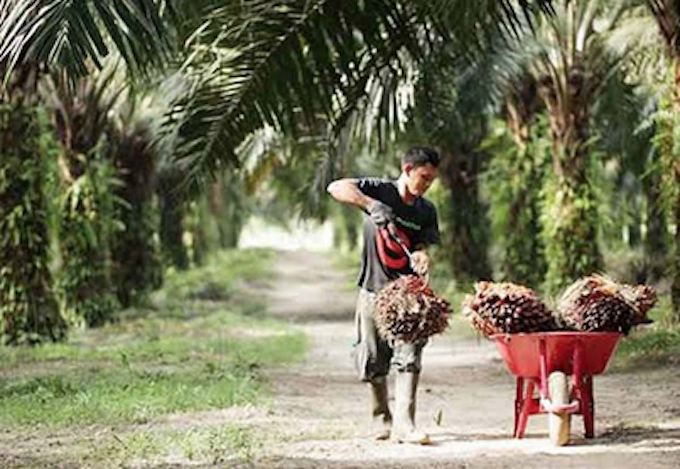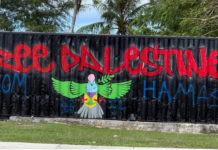Asia Pacific Report newsdesk
Amnesty International Indonesia is urging the government — and the police in particular — to tighten supervision of the palm oil industry following the finding of a human cage with at least 27 people living there at the home of non-active Langkat Regent Terbit Rencana Perangin Angin, reports CNN Indonesia.
Amnesty International executive director Usman Hamid said that greater supervision of the palm oil industry was needed because the business sector was prone to exploitation of workers, traditional communities and the environment.
“Moreover this is not the first time that the exploitation of workers has occurred in Indonesia’s palm oil industry. In 2016, Amnesty International found serious human rights violations at several palm oil plantations in Indonesia,” he said in a media release.
“The findings included forced labour, the use of child labour, gender discrimination and labour practices which were exploitative and endangered workers.”
Amnesty said that the human cage found at the Langkat regent’s house was of great concern.
Hamid said that he could not imagine how the practice of human slavery could have gone on for years.
“Law enforcement officials must fully investigate this case and ensure that all of the people involved are brought before the courts in hearings which meet international standards on justice and not end with the application of the death penalty,” said Hamid.
UN convention against torture
Amnesty also reminded the state about the United Nations convention against torture, which Indonesia had ratified.
“The UN Convention on Torture and Other Cruel, Inhuman and Degrading Treatment or Punishments also prohibits all forms of torture and inhuman treatment,” Hamid said.
In addition to this, he noted that Article 8 of the International Convention on Civil and Political Rights (ICCPR) — which has been ratified by Indonesia — stated that no person could be treated as a slave or enslaved.
“All forms of torture are explicitly prohibited in a number of instruments on the protection of human rights, such as under Article 7 of the ICCPR for example,” Hamid said.
The finding of the human cage came to the fore after Migrant Care reported it to the National Human Rights Commission (Komnas HAM) on January 24. In its report, Migrant Care reported that there were seven alleged cases of slavery.
The human cage was found when a Corruption Eradication Commission (KPK) team arrived at the Langkat regent’s house during a sting operation on January 18. At the time, the KPK team, which was backed by the police, found at least 27 people inhabiting a cage when it was conducting the raid.
Based on the results of a preliminary examination, the North Sumatra regional police said that it was claimed that the cage was used for narcotics rehabilitation and had been there since 2012 or around 10 years.
Dwelling had no licence
The dwelling referred to as a rehabilitation facility had no licence even though it had been known about by the Langkat National Narcotics Agency (BNN) since 2017.
National police spokesperson Brigadier General Ahmad Ramadhan said that the dozens of people occupying the cage at the regent’s house were also employed as palm oil factory workers, although they were not paid.
He said that they had recorded at least 48 people occupying the cage on the pretext of narcotics rehabilitation.
“Some were employed at the palm oil factory owned by the Langkat regent. [But] they were not paid a wage like [ordinary] workers,” Ramadhan told journalists.
Translated by James Balowski of IndoLeft News. The original title of the article was “Kerangkeng Manusia, Amnesty Minta Polisi Ketat Awasi Industri Sawit”.











































